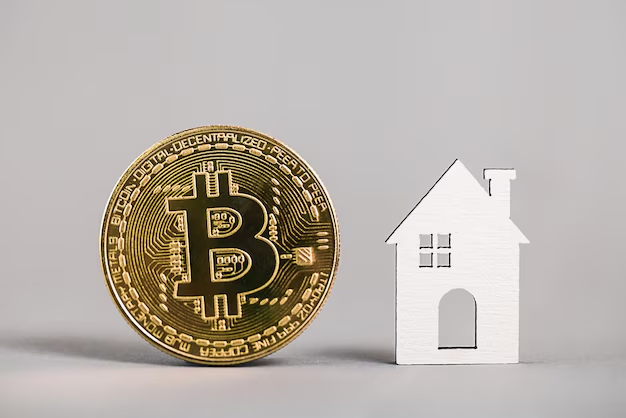Why Real Estate Still Outshines Bitcoin for Long-Term Investment in 2025
As investors reassess their strategies in 2025, the question of where to allocate capital remains pressing. Should one choose the tried-and-tested path of real estate investing, or take a chance on the volatile but high-potential world of cryptocurrency, particularly Bitcoin? While both asset classes have their advantages, real estate continues to stand tall as a superior investment vehicle for long-term stability and returns.
Stability with Proven Historical Returns
Real estate offers consistent returns that have historically kept pace with inflation. According to Realtor.com, the average return on real estate since 1975 has exceeded 26%, making it a reliable choice for investors focused on wealth preservation and growth. In contrast, Bitcoin remains subject to intense market speculation, driven largely by sentiment rather than intrinsic value.
“If you are looking for steady cash flow with a history of returns that tend to keep pace with inflation, commercial real estate may be the answer,” notes Ed Mahaffy, a certified financial planner and senior portfolio manager at ClientFirst Wealth.

Tangible Assets vs. Digital Volatility
One of the key appeals of real estate is its tangibility. Whether it’s a residential unit, a retail store, or a commercial building, the asset exists in the physical world. It can be used, improved, or repurposed. Dan Reedy, a real estate investor, emphasizes that “real estate wins every time because it’s a tangible asset with proven stability.”
Bitcoin, on the other hand, exists purely in the digital space. Its value is based on perception, and while it can provide liquidity and easy market entry, it offers none of the physical utility or stability of bricks-and-mortar investments.
Consistent Cash Flow and Tax Advantages
One of the key reasons investors continue to prefer real estate is its ability to generate monthly income. Rental properties can provide positive cash flow, allowing investors to pay down debt and reinvest profits. Bitcoin, being a non-income-producing asset, relies entirely on capital appreciation for returns.
Additionally, real estate offers attractive tax advantages. Mortgage interest, depreciation, maintenance expenses, and property taxes can often be deducted—helping investors reduce their taxable income. Bitcoin, by contrast, does not offer any such tax reliefs.
Resilience Amid Market Uncertainty
With global markets facing rising inflation, high interest rates, and geopolitical tensions, real estate continues to provide a hedge against volatility. Even with mortgage rates averaging 6.84% APR in 2025, many investors prefer real estate’s relative predictability.
“For me, investing is about building long-term wealth, and real estate has a track record of doing just that for generations,” Reedy adds.
Bitcoin: High Potential, Higher Risk
Bitcoin’s value can surge 30% in a week—and drop just as quickly. That volatility attracts thrill-seeking traders, but it raises concerns for risk-averse, income-oriented investors. Paul Gabrail from Everything Money describes it as “a roller coaster” compared to the “merry-go-round” nature of real estate investing.
While Bitcoin may have a bright future, with institutional and sovereign adoption potentially expanding, it lacks the historical depth, income potential, and tangibility that make real estate a foundation of serious investment portfolios.
Diversification Is Key
Ultimately, diversification remains vital. Bitcoin may still serve as a complementary asset in a broader investment portfolio. But when it comes to core holdings that provide income, security, and long-term value—real estate remains king.
Conclusion
In 2025, as the global investment landscape evolves, real estate continues to prove itself as a stable, resilient, and income-producing asset. While Bitcoin and other cryptocurrencies have their place in the modern investor’s toolkit, they lack the physicality, utility, and predictability that real estate offers. For investors prioritizing tangible value, consistent returns, and a hedge against economic uncertainty, real estate remains the preferred path.
Visit Aurantius Real Estate for expert investment guidance and access to premium Dubai properties.










